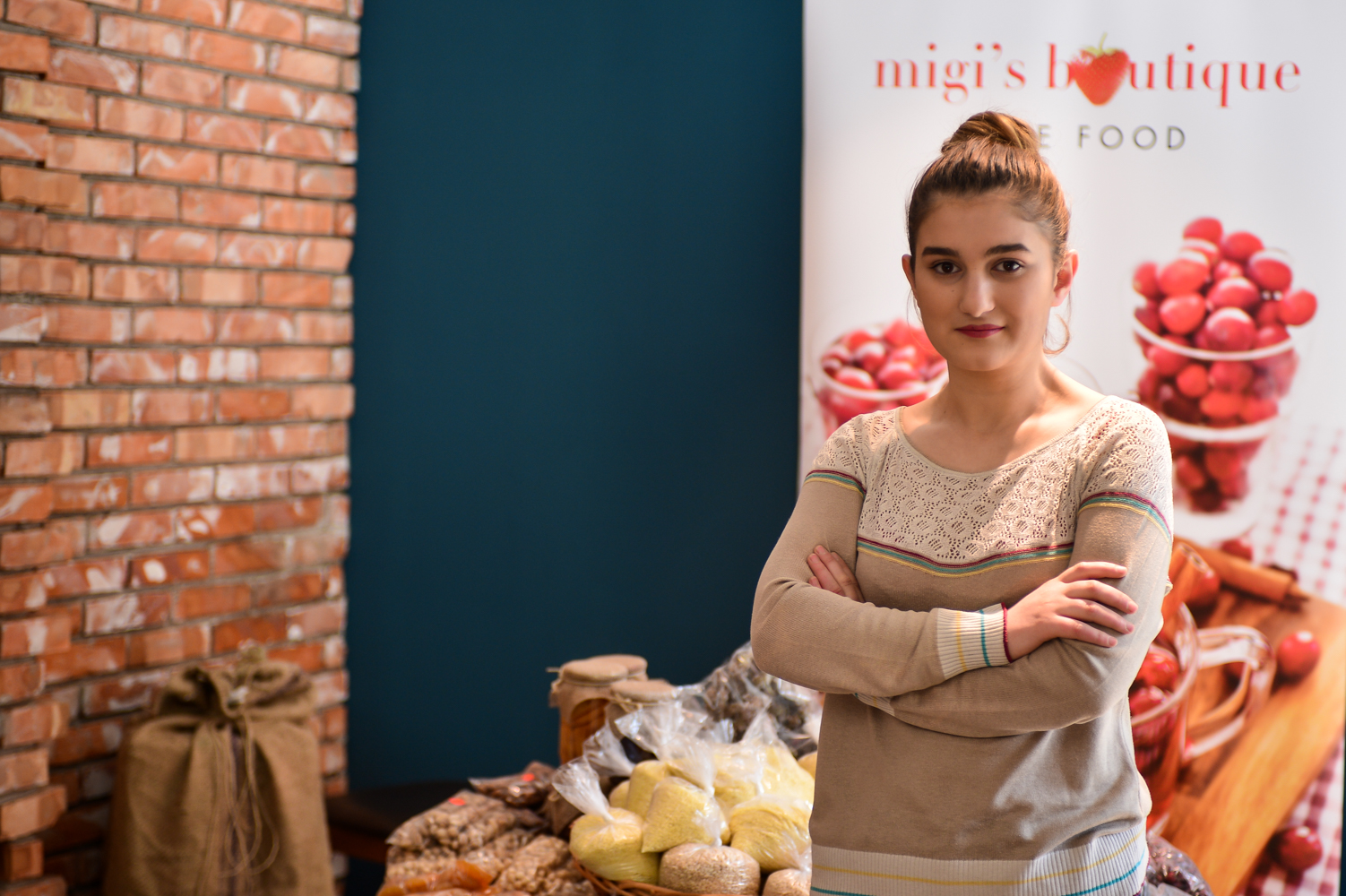--- Image caption ---
If you ever go to Tirana, do visit Migi’s Food Boutique. It offers a unique food experience. Migi has put her heart and mind into this business. With commitment, right guidance, coaching and hard work she succeeded in only a few months in setting up a profitable business.
“I have a Bachelor’s degree in Finance and Banking from the University of Tirana. Like many of my friends, I was in search for a job for more than a year after my graduation. I went through many job interviews but they did not translate into anything concrete. One day, I saw an announcement on UNDP Facebook calling on young people to submit their business ideas and join the Self-Employment Programme”.
Migi experience is not an exception. Youth in Albania face significant challenges to enter the labour market compared to the rest of the population. Youth unemployment rate in Albania is high and 27.4% of those who are actively seeking employment are unable to find one despite for many of them a good level of qualification, nearly double compared to the overall unemployment rate in the country. Young Albanians lack neither confidence nor talent, yet they have trouble taking the plunge into self-employment and would rather seek employment in the public sector.
During the 25 years of gradual transition to an open market economy, prior unfair competition, unclear market rules and regulatory frameworks were elements that inhibited young people from considering setting up their enterprises. The education system that focuses on theoretical rather than practical know-how and where entrepreneurial learning was deficient was also not enabling the labor market to incorporate self-employment.
In March 2016, thanks to the Swiss cooperation, UNDP launched the Self-employment Programme targeting youth between 18 and 30 years old to strengthen entrepreneurial skills. 440 young people applied and 75 were selected to follow the training to set up and run a company. The majority of the business ideas are in the fields of information and communication technology (ICTs), tourism, agro-processing, apparel, handcrafts and other services-all responding to market needs and with the strong potential of creating new jobs in the future. Proposals ranged from provision of basic services to on-demand battery charging stations for bars and restaurants or setting up a small-scale fish farm using aquaponics technology - to mention just a few.
“The training was very effective and hands on. We were introduced to practical tools to set up a business. Mentorship was also important and we met successful entrepreneurs who explained their way to success. I was able to fine-tune the business model of my shop and received legal and financial advisory support” noted Migi.
Migi has set up a “Food Boutique”, offering local food and home-made products. In a world filled with packaged and processed food, she was confident people would choose her healthier products. What makes them special is the fact that they are prepared with high quality ingredients, coming directly from local farmers, just as one of the most on demand items, her mother’s home-made pasta, “jufka” a traditional Albanian delicatessen.
Megi’s business is growing every day. Customers do return and new ones visit and she’s thinking of scaling up to an online offer.

 Locations
Locations
